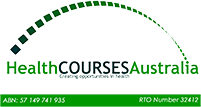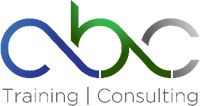
Popular courses in Toowoomba
Diploma of Leadership and Management
- There are no mandated entry requirements.






Diploma of Community Services
- There are no mandated entry requirements.


Diploma of Practice Management
- There are no mandated entry requirements.



Certificate III in Health Services Assistance
- There are no mandated entry requirements.


Certificate III in Health Administration
- There are no mandated entry requirements.
 Foundation Education
Foundation Education
Advanced Diploma of Civil and Structural Engineering (Materials Testing)
- There are no mandated entry requirements.
 Engineering Institute of Technology
Engineering Institute of Technology
Diploma of Laboratory Technology
- There are no mandated entry requirements.


Certificate II in Sampling and Measurement
- There are no mandated entry requirements.




Bachelor of Biomedical Science
- There are no mandated entry requirements.
 University of Southern Queensland
University of Southern Queensland
Master of Public Health (Health Promotion)
- There are no mandated entry requirements.
 Victoria University
Victoria University
Master of Public Health
- There are no mandated entry requirements.


Master of Biostatistics
- There are no mandated entry requirements.
 The University of Queensland
The University of Queensland
Graduate Diploma in Science
- There are no mandated entry requirements.
 University of Southern Queensland
University of Southern Queensland
Graduate Diploma in Biostatistics
- There are no mandated entry requirements.



Undergraduate Certificate in Science
- There are no mandated entry requirements.
 Charles Sturt University
Charles Sturt University
Diploma in Science
- There are no mandated entry requirements.
 University of Southern Queensland
University of Southern Queensland
Bachelor of Medical Laboratory Science
- There are no mandated entry requirements.
 University of Southern Queensland
University of Southern Queensland
Master of Neuroscience
- There are no mandated entry requirements.
 University of New England
University of New England
Master of Health Research
- There are no mandated entry requirements.
 Federation University
Federation University
Advanced Diploma of Laboratory Management
- Completed Diploma (AQF Level 5) or above in a science, technology, engineering or mathematics (STEM) discipline OR
- Completed Diploma of Laboratory Technology or equivalent qualifications OR
- Evidence of relevant skills, knowledge and employment experience
 ABC Training and Consulting
ABC Training and Consulting
Frequently Asked Questions
Yes, there are course providers who offer 20 qualification(s) in Toowoomba. Find a course provider near you. Once you make an enquiry, a course advisor will get in touch to discuss your study options and course fees.
Written by Courses.com.au Team
There are several campuses within the Toowoomba area that provide medicine training. The nearest campus is located right in the center of Toowoomba. You can also study a medicine course through online, distance or traineeship learning. Find a course provider that best suits your needs.
Written by Courses.com.au Team
Potential job roles within medicine includes medical laboratory technician, laboratory attendant or laboratory technician (to name a few). Browse related occupations to find a career that suits your needs.
Written by Courses.com.au Team
Further reading


Certificate III in Pathology Collection: Everything You Need to Know
10th February 2025)
